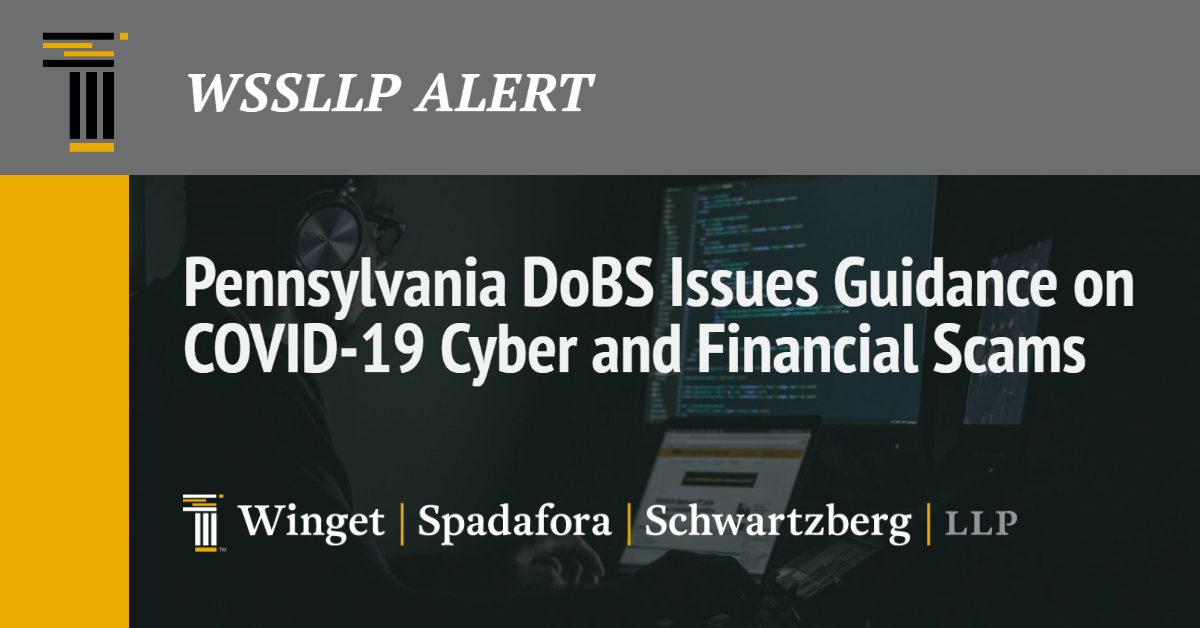As the Financial Industry Regulatory Authority (FINRA) has touted through the years, financial fraudsters tend to follow the old Willie Sutton maxim about why he robbed banks: “because that is where the money is.” In these trying financial times, increasingly “where the money is” happens to be the hands of consumers adversely affected by the fallout from COVID-19. In its recent quarterly newsletter from April 2020, the Pennsylvania Department of Banking and Securities (DoBS) importantly brings attention to some of the ripple effects which continue to impact people and the economy to specifically include financial scams centered on COVID-19.
https://www.dobs.pa.gov/Documents/Newsletter/Newsletter%20Volume%2011/Quarter43vol11.pdf
Notable in this alert is the increasing concern of stimulus payment phishing scams wherein fraudsters target recipients of stimulus payments from the federal government. Indeed, the IRS has reported a recent surge in scam artists that pose as government officials and try to trick people into disclosing their banking information. Obtaining such information opens the door to all sorts of untoward and criminal activity such as filing a fraudulent tax return in the person’s name, an issue of particular concern given that tax filing day was extended to July 15, 2020.
These COVID-19 centric phishing scams present many of the traditional hallmarks of phishing: seeking to confirm an individual’s banking or personal information to “speed up” payments; asking to sign over stimulus checks; suggesting assistance to expedite payment; and mailing bogus checks where consumers are asked to call a number to cash it. DoBS reminds all consumers that they must be vigilant in looking out for imposters as well as conducting independent research and approaching all attachments and links with due caution.
Other traditional investment schemes and scams are also likely to be recast with the shadow of COVID-19. “As is so often the case during times of emergency, scammers will be looking to profit from the misfortune of others by targeting investors and capitalizing on concerns related to the securities market,” said DoBS Acting Secretary Richard Vague. “The narrative of the investment scheme may change, but the underlying scam remains the same.” As DoBS reminds, these scams tend to target retirees and senior citizens and promote what seem to be legitimate, and often altruistic ends, such as raising capital for manufacturing of necessary medical equipment.
DoBS reminds investors that there are crucial ways that they can protect themselves from these investment scams. For instance, investors must remember never to share financial information without independently verifying a request; never open attachments from an unsolicited email; investigate before you invest; and remember “if it sounds too good to be true, it probably is.” As always, best practices and risk management today is the best recipe to limit exposure in the future.





